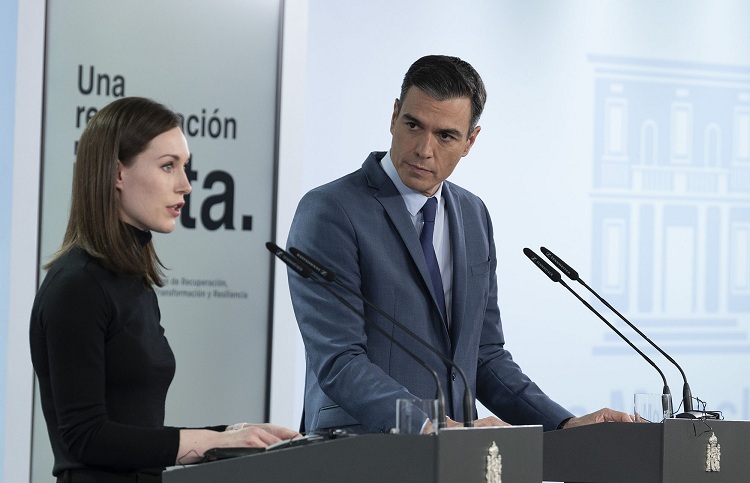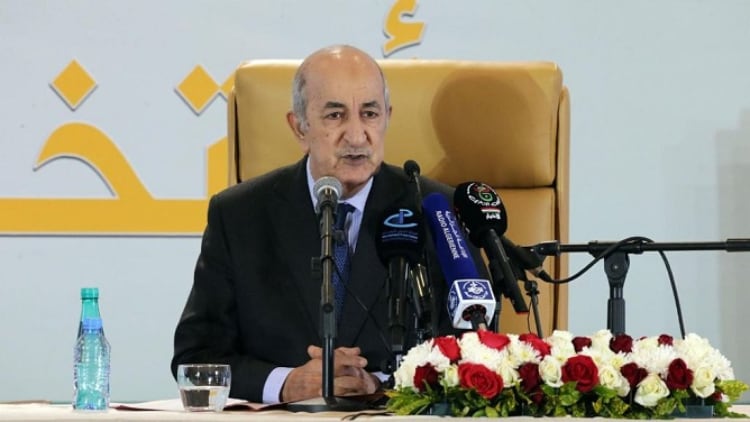The Diplomat
The Minister of Foreign Affairs, José Manuel Albares, will meet this week with his counterparts from some of the countries in Europe’s ‘hot zone’ most affected by the Russian invasion of Ukraine, especially Finland, a country that is on the verge of abandoning its traditional neutrality.
According to the minister’s weekly agenda, Albares will receive tomorrow at the Viana Palace the Latvian Foreign Minister, Edgars Rinkēvičs, in whose country Spain has 280 military personnel deployed in the framework of the NATO Enhanced Forward mission. Last Friday, the Minister of Defense, Margarita Robles, announced that the Brigade Guzmán El Bueno X (BRI X) will relieve next July the force currently deployed since January 2022. The new troops will stay for another six months and will be complemented by another 40 military personnel from units in Seville.
On Wednesday, Albares will begin a tour of Finland, Lithuania and Romania. The first stop on the tour will be Helsinki and will coincide with the start of the Finnish Parliament’s debates on the country’s possible entry into NATO in response to the climate of insecurity generated by Russia’s war in Ukraine. In case of parliamentary approval (the debate started last Wednesday and is expected to last several weeks), Finland could submit its application for membership before the next NATO summit, to be held in Madrid at the end of June. At the moment, more than half of the Parliament has already come out in favor of membership.
The NATO accession process is much faster than that of the EU and could be completed in about four months. It requires the unanimous support of all 30 NATO members, following ratification in the parliaments of all member states. The initial support of the governments is almost taken for granted, but the parliamentary process seems to be a more complicated hurdle. Pending what might happen, the Kremlin’s Russian Foreign Ministry spokeswoman, Maria Zakharova, has warned that Finland’s entry into NATO would have consequences and former Russian President Dmitry Medvedev recently stated that, if it were to join, “Russia would have to strengthen its defenses in the Baltic Sea region, including through the deployment of nuclear weapons”.
Finland, which shares a 1,300-kilometer border with Russia (and has a large Russian-speaking community), has historically been characterized by a strict neutrality that has helped it avoid problems with its powerful neighbor and play a prominent role as a mediator in conflicts. Finland is not a member of NATO, although it has been part of the Alliance’s group of partners since 2014. Last January, Prime Minister Sanna Marin went so far as to declare that Finland’s NATO membership was “highly unlikely.” However, Russia’s aggressive policy has substantially changed the rules of the game, to the point that 65% of Finns have come out in favor of NATO membership, something absolutely unthinkable until not so long ago. In fact, Finland’s traditional neutrality already had its first seams with the decision of Sanna Marin’s government to send military equipment to Ukraine, a radical novelty in a country that had always refused to send weapons to conflict zones.
Lithuania and Romania
Albares will then move on to another ‘hot spot’, Lithuania, whose Lithuanian Foreign Minister Gabrielius Landsbergis last Friday called on NATO to take “specific decisions” to strengthen the defense of the Baltic countries and the eastern flank, including an additional deployment of NATO troops in his country and the other countries in the area. Landsbergis also warned that events in Ukraine have “fundamentally” changed the security environment in Europe and that this must be reflected at the Madrid summit.
The minister’s tour also includes Romania, a country that recently reformed its own laws on the export of national defense products in order to be able to supply weapons to Ukraine. In addition, Romania is one of the countries on the eastern flank that are to receive further NATO reinforcements, since, at the Alliance’s extraordinary summit at the end of March, the allies approved the deployment of four new combat battalions to four countries on the eastern flank, including Romania. Apart from that, Romania is, after Poland, the second bordering country that is receiving the most Ukrainian refugees, with almost 760,000, according to the latest figures.







